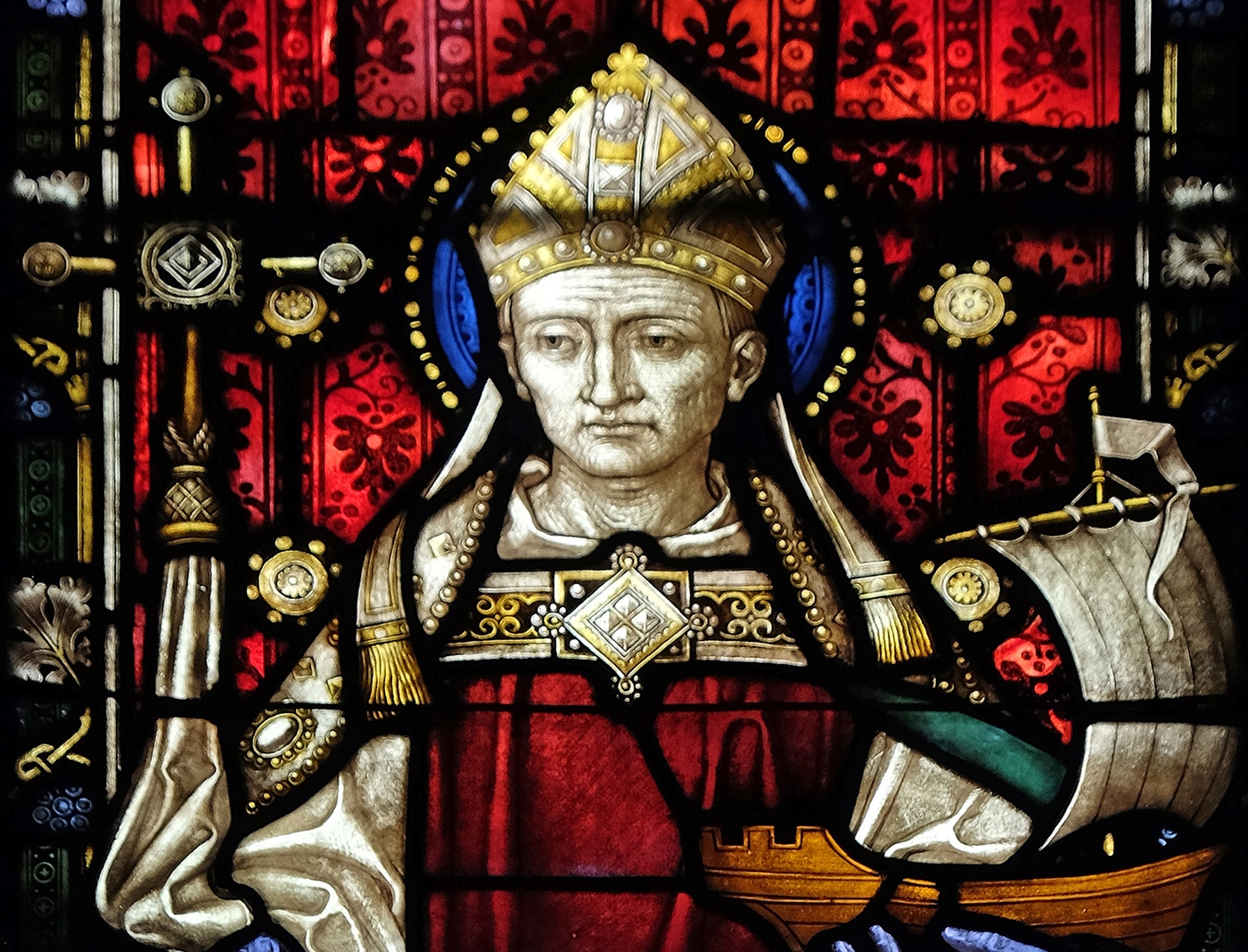St. Anselm, Bishop and Doctor of the Church
Feast day: April 21
Considered the “Father of Scholasticism,” St. Anselm (1033-1109) was born in Aosta, Italy, and died in Canterbury, England, where he defended the rights of the Church over the state while writing philosophical and theological works laying the groundwork for the great scholars of the Middle Ages. A man with a brilliant mind but a humble heart who truly lived his faith, St. Anselm was a Benedictine monk who rose quickly to positions of prior and abbot in monasteries at Caen and Bec in France. His devotion to Christ is exemplified by his willingness to stand up for the rights of the Church against two English kings despite being exiled twice.
Since his monastery in Bec had land in both Normandy and England, St. Anselm visited the lands in England three times and eventually was chosen to be Archbishop of Canterbury by William II, the son and successor of William the Conqueror from Normandy. The tumultuous relationship between St. Anselm and William II was the result of the king’s attempts to appropriate Church lands, offices, and incomes in England. However, the height of St. Anselm’s conflict with the English crown was over the encroachment of the English king on the investiture rights of the Church and her clergy. St. Anselm refused to accept his pallium from the king’s hand, and his differences over the separation between Church and state continued under the following English king, Henry I.
St. Anselm defended the spiritual jurisdiction of the Roman Catholic Church. His determination to defend the rights of the Church stemmed from his belief that St. Peter was the Prince of the Apostles and, as such, the source of all ecclesiastical authority and power with the pope as his successor. As a bishop, St. Anselm believed that he owed the pope obedience.
While in exile from England, St. Anselm produced numerous theological works. Considered the “Augustine of the Middle Ages,” he authored a famous treatise on the Incarnation entitled Cur Deus Homo. He also published works on predestination and the grace of God as compatible with free choice. Such works were developed and provided a defense of the Church’s teachings during the Protestant Reformation. St. Anselm was made a Doctor of the Church in 1720.
St. Anselm’s theological motto, fides quaerens intellectum (“faith seeking understanding”), has become a definition for all theological enquiry. In his work “Proslogion,” St. Anselm writes to convince the doubtful by sharing the love of a merciful God who hopes to be united with us:
“Come now, little man! Flee for a while from your tasks, hide yourself for a little space from the turmoil of your thoughts. Come, cast aside your burdensome cares, and put away your laborious pursuits. For a little while give your time to God, and rest in Him for a little. Enter the inner chamber of your mind, shut out all things save God and whatever may aid you in seeking God; and having barred the door of your chamber, seek Him.”
Reflection
Dear Lord, help me to make good use of my talents for the building up of your kingdom. May I humbly serve you no matter what the cost and follow your lead even if I may not see the good results during my lifetime.
Prayer
O God, who led the Bishop Saint Anselm
to seek out and teach the depths of your wisdom,
grant, we pray,
that our faith in you may so aid our understanding,
that what we believe by your command
may give delight to our hearts.
Through our Lord Jesus Christ, your Son,
who lives and reigns with you in the unity of the Holy Spirit,
God, for ever and ever.





